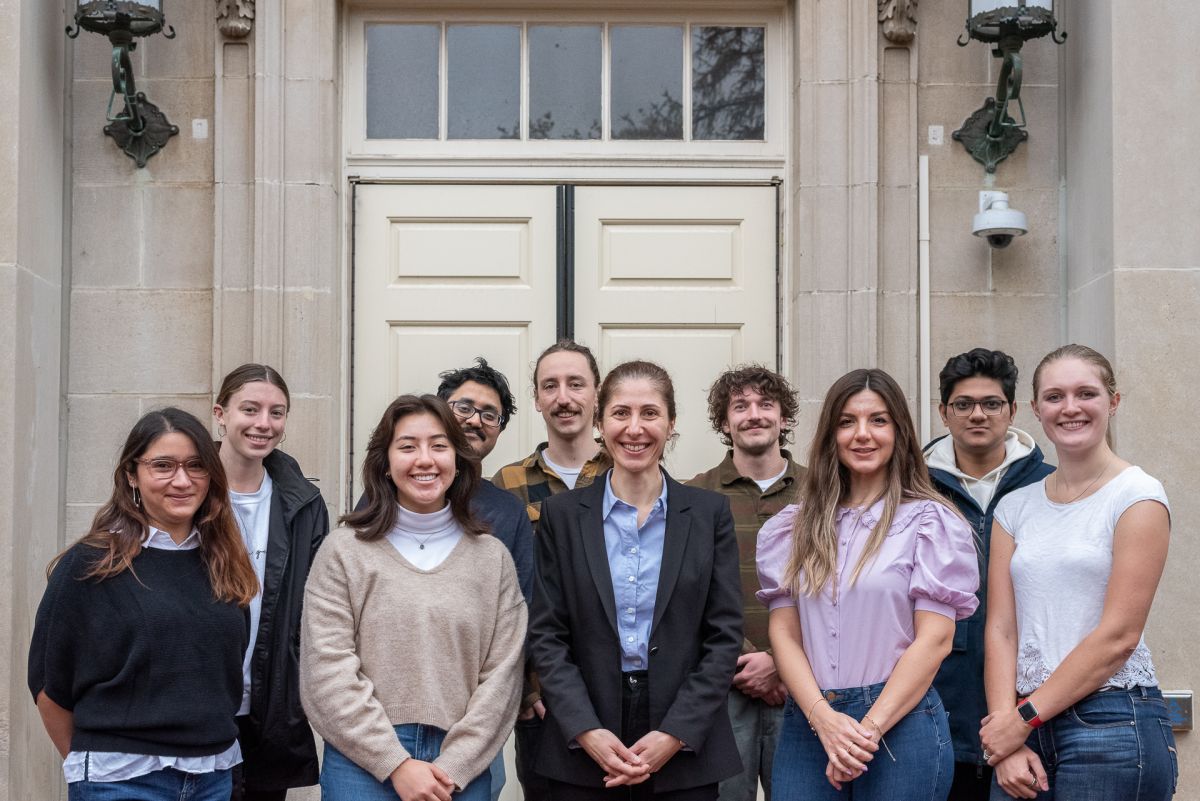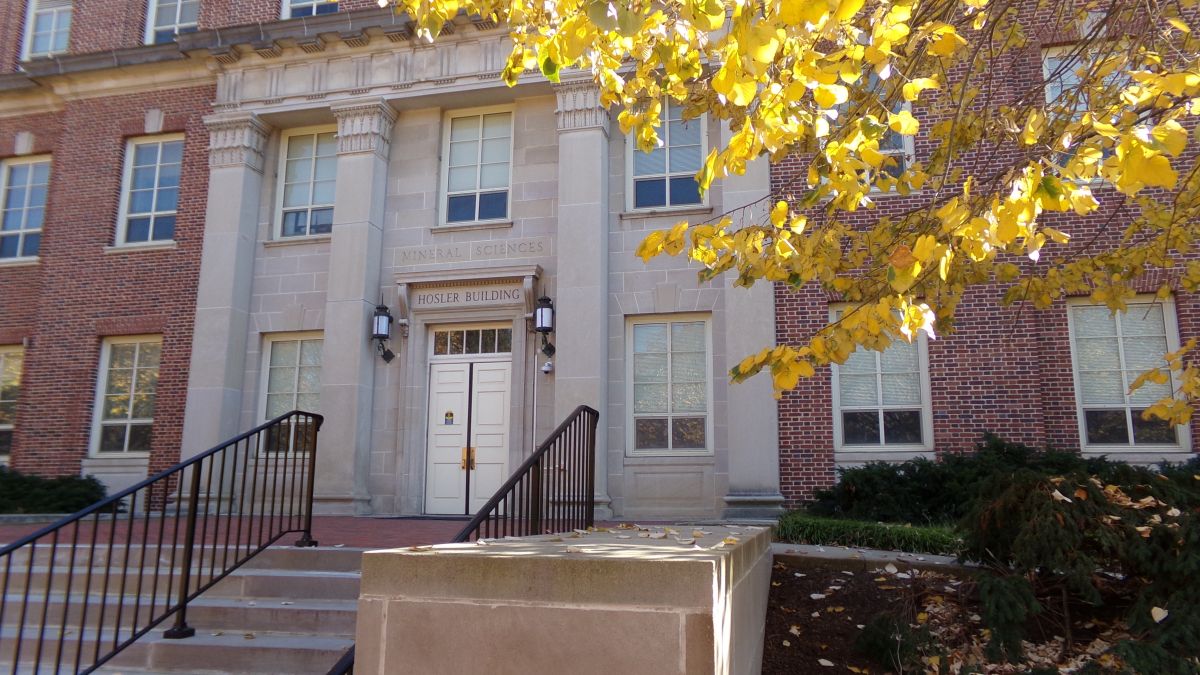By Timothy Kelly
The rapidly growing chemical recycling industry is picking up steam, but it faces important obstacles — obstacles that the Toraman Research Group at Penn State hopes to overcome. This research group focuses on plastic pyrolysis, or the process of breaking down plastics with heat, in an oxygen-free atmosphere. The group’s aim? Optimize the current process so recyclers can turn plastic waste into valuable products again.
Hilal Ezgi Toraman is the Virginia S. and Philip L. Walker Jr. Faculty Fellow in the John and Willie Leone Family Department of Energy and Mineral Engineering, with a joint appointment in the Department of Chemical Engineering at Penn State. We spoke to her recently to get the scoop on plastic waste recycling and what Penn State is doing to improve the industry.

The Toraman Research Group, led by Dr. Toraman (center), is focusing on turning plastic waste back into valuable products. Photo: Provided.
Challenges, challenges, challenges
Mechanical recycling, the process of cleaning and pelletizing plastics, is used for a limited number of plastic types and captures only about 9% of waste plastics in the United States. Another 79% of plastic waste remains in the environment and 12% is incinerated. Toraman’s research includes a focus on returning this plastic waste to its original building blocks, chemicals or fuels. As she wrote, “…plastic is not the enemy. Our handling of plastics is.”
But in order to do that, the industry must overcome other various challenges. For example, the amount and make-up of plastic waste varies from place to place and over time. Additionally, it’s almost impossible to economically separate mixed plastics for recycling.
“But pyrolysis can handle it,” Toraman said in a recent Penn State news release, “so it’s a very important option.”
But while pyrolysis can handle the waste, researchers are still learning exactly how. That’s where Toraman’s group comes in. Toraman said, “We do not know currently what is happening when we have mixtures of plastic. Even for single polymers, there is very limited knowledge. And without understanding those interaction effects and… increasing the complexity in a systematic way, we cannot… understand those reactions or develop new processes.”
“We are building knowledge step by step”
Toraman said her research group is decoding this complex state “both at the feedstock level and at the reaction level. And in order to do that… we are building knowledge step by step.”
She continued, “we are choosing first… single polymers, then we study the effect between binary polymers. And… then we will start increasing the complexity” by studying interactions between ever larger groups of plastics.

Home of the Toraman Research Group at Penn State. Photo: T. Kelly.
Building a team for global impact
Toraman’s research is a direct expression of the mission of the Department of Energy and Mineral Engineering – “safe, efficient and environmentally responsible recovery, processing and utilization of earth resources” in a diverse, interdisciplinary setting. To that end, Toraman is building a research team in part to address the global problem of plastic waste. “We are contributing [to] the transition for successful commercialization of… plastic waste management facilities,” she said.
Toraman concluded, “I think the ultimate impact will be that plastic will not be treated as a waste, but it will be treated as a feedstock that we can feed into… our economy,” and not just accumulate in nature.

